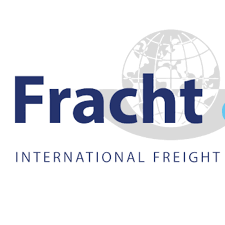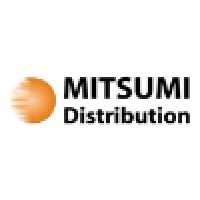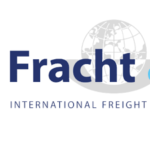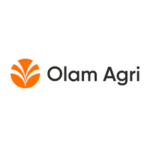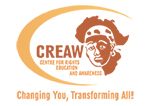
PURPOSE
The Jasiri Consortium comprising Centre For Rights Education and Awareness (CREAW), Grassroots Organizations Operating Together in Sisterhood (GROOTS Kenya), Collaborative Center for Gender and Development (CCGD), Centre for Domestic Training and Development (CDTD) and Advocates for Social Change Kenya (ADSOCK) are jointly implementing the Jasiri Program (the program) for a period of 5 years (2023-2028). The consortium seeks to retain a program skilling lead who will coordinate the Skilling of adolescent girls and young women (AGYW) throughout the program. The successful candidate will work closely with technical skilling leads from the consortium partner organizations to ensure efficient implementation of all skilling interventions in the program. The successful candidate will directly report to the Jasiri Program Manager.
CONTEXT
The Jasiri program builds on the achievements of a pilot program implemented by the consortium during the COVID Pandemic to address the high incidences of gender-based violence. The program seeks to deepen support to most at-risk girls and young women who are survivors of gender-based violence in 16 counties in Kenya that are recording high prevalence rates of Gender Based Violence. The Jasiri Program will expand its scope to address GBV and the heavy load of unpaid care and domestic work as an emerging gender barrier that disproportionately affects adolescent girls and young women living in rural areas and urban informal settlements.
This program will address the following systemic and structural barriers:
- Limited access to gender-responsive financial resources and skilling would reduce entrepreneurship and employment opportunities for adolescent girls and young women who are GBV survivors or at risk of GBV.
- Limited capacity and resources among national and sub-national (county) governments and GBV service providers to effectively respond to GBV and unpaid care work faced by adolescent girls and young women.
- Social norms and harmful cultural beliefs, attitudes and practices expose AGYW to abuse and discrimination and prevent them from meaningfully participating in the world of work.
The program’s broad interventions are:
- Engage financial services providers and State department of gender to build up responsive and inclusive financial services that cater to the full range needs of young women especially gender-based violence survivors. Support and collaborate with community skilling partners to provide skilling opportunities (life skills, entrepreneurship) to GBV survivors and most at-risk Adolescent Girls and Young women (AGYW) as a pathway to work
- Collaborate with national and county governments and to address unpaid care and domestic work through policy, practice, and budget reforms. Engage community leaders and gatekeepers (including men, boys, and cultural and religious leaders) in shifting perceptions, attitudes, and beliefs that perpetuate gender inequalities e.g GBV and the heavy load of unpaid care work.
- Enhance capacity and resilience GBV service providers including Safe shelter actors to provide timely, safe, and confidential services to support the short- and long-term healing and empowerment of GBV survivors. Enhance capacity of National and county governments (e.g., sensitization on how to domesticate national GBV policies and SOPs) to implement laws and policies that prevent and respond to GBV.
Some of the expected program outcomes will include:
- Increased utilisation and uptake of gender responsive and inclusive financial services/products by young women and young women owned MSME’s.
- Enhanced resilience of GBV survivors and most at-risk adolescent girls and young women in entrepreneurship and in the world of work.
- More time and agency for adolescent girls and young women to participate in economic opportunities.
POSITION SUMMARY
The Jasiri program skilling lead provides technical guidance and expertise on skilling interventions and approaches for the Jasiri program. The skilling lead shall ensure that the interventions are evidence-based, align with best practices and contribute to the goals of the Jasiri Program and the Young Africa Works Strategy.
The Jasiri program skilling lead will oversee the implementation of all skilling interventions ensuring adherence to project goals, objectives, and timelines.
The program skilling lead will directly report to CREAW with dotted reporting lines to the Jasiri Consortium Program Steering Committee.
The program skilling lead will carry out the following roles:
1. Program Management:
- Coordinate the implementation of the skilling interventions and ensure effective communication and collaboration between consortium members, program participants and all skilling partners.
- Ensuring that all skilling interventions are implemented according to the program workplans, budgets, and timeline.
- Oversee activity deliverables, including ensuring report preparation and high-quality timely submission, and ensuring cross-cutting issues are effectively integrated into activity implementation.
- Oversee preparation of work plans, consolidate activity updates, and other skilling activity-related communication materials.
- Oversee efficient and accountable use of program resources that support skilling interventions.
- Ensure diversity and inclusion in the program interventions specifically for persons with disability and refugees.
- Leadership and Team Management: Lead program skilling teams to ensure activity tasks, deliverables, and responsibilities are met in a timely manner.
- Stakeholder Engagement: Oversee the building and maintaining of strong relationships with relevant stakeholders in the skilling ecosystem, including government agencies, NGOs, community organisations, and other key actors relevant to the program. Foster collaboration and partnerships to enhance program outcomes.
- Compliance: Ensure all skilling interventions are compliant with the Jasiri consortium partners values and the Mastercard Foundation charitable purposes, rules and regulations, as per specific contractual requirements. Ensuring adherence to ethical and legal standards, including safeguarding policies, gender equity, and anti-fraud and anti-corruption policies.
- Program Learning and knowledge Management: Oversee learning and adaptation, monitoring and evaluation of program performance on skilling, using data and feedback from diverse stakeholders to inform strategic decisions and adjustments to program implementation.
- Risk Management: Oversee Identification risks that may impact implementation of skilling interventions and lead development of mitigation measures towards ensuring the program’s success.
- Capacity Building: Oversee implementation of capacity strengthening plans within the consortium program skilling teams and partner organizations.
QUALIFICATIONS
The program skilling lead must have a combination of relevant education, experience, and skills.
- Education: A degree in gender and development studies social sciences, or a related field is required. A combination of relevant education and extensive experience is required.
- Experience: A minimum of 5 years of progressive experience in project planning and managing skilling programs targeting marginalized and vulnerable young women and girls. Proven experience in managing and implementing skilling programs and demonstrated experience working in diverse environments is highly desirable. Must have some experience in working with master craftsmen and private sectors players in the Informal economy.
- Project Management Skills: Strong project management skills, including communication, planning, coordination, budgeting, monitoring, and reporting. Familiarity with project management tools and methodologies.
- Leadership Abilities: Excellent leadership and interpersonal skills, with the ability to effectively manage a diverse team and foster collaboration and teamwork. Have great engagement and negotiation skills.
- Technical Expertise: Experience in implementing skilling programs preferably targeting marginalized and vulnerable young women and girls. Practical knowledge of gender and women rights, women and girls empowerment, including understanding of best practices, evidence-based skilling interventions is highly desired.
APPLICATION SUBMISSION
Interested candidates are invited to apply and submit their CV and a cover letter detailing their qualifications and experiences via https://ee.kobotoolbox.org/x/hNDgFUZr by close of business 12th July 2024.
CREAW is an equal opportunity employer and encourages applications from qualified individuals of all backgrounds and diversities.
CREAW is committed to safeguarding and promoting the welfare of women and girls and expects all staff to share this commitment. The successful candidate will be required to undergo a background check.
Young women who are qualified are highly encouraged to apply. Only shortlisted applicants will be contacted.

